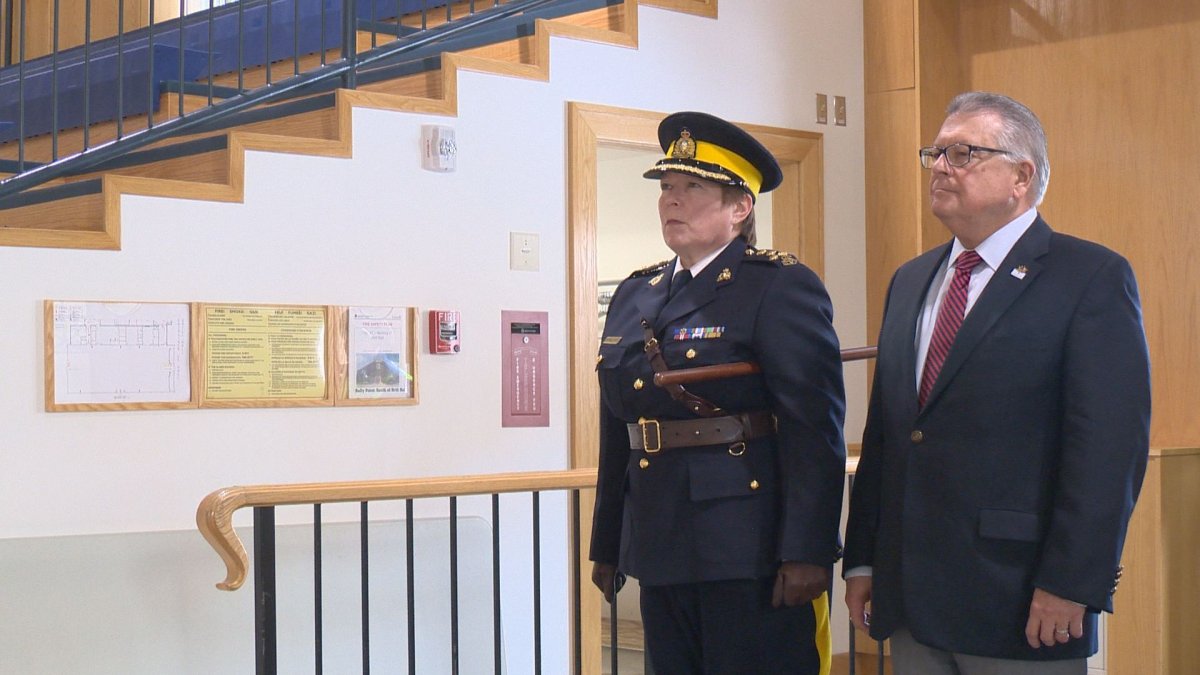Every day, police officers across the country are put in high risk and traumatic situations, and too often, it results in operational stress injuries, including post-traumatic stress disorder.

In response to this, the federal government has awarded an $8.9 million contract to the University of Regina to conduct a study on the effects policing has on the mental health of RCMP officers.
Minister of Public Safety and Emergency Preparedness Ralph Goodale made the announcement at the RCMP Depot in Regina Friday afternoon.
“The demands, expectations, pressures and stresses associated with this line of work are intense and unrelenting,” Goodale said. “You see and you experience some very tough things.”
The purpose of the research study is to identify the psychological and physiological signs of trauma and stress-related disorders.
“If we want our public safety and emergency workers to be effective in keeping Canadians safe, they themselves have to be safe and healthy,” Goodale said.
The 10-year study will be conducted using wearable technology, annual psychological assessments and self-reporting measures. Participation is voluntary and confidential for RCMP officers or cadets.
“The study is designed to be a longitudinal project, which means we are going to be assessing participants at the very beginning of their training, as they conclude their training and then we’re going to assess them repeatedly after,” University of Regina Psychology Professor Dr. Nicholas Carleton said.
Dr. Carleton, who is also the Scientific Director for the Canadian Institute for Public Safety Research and Treatment, will be leading the study along with experts from both Canada and the United States.
“I think for the first time ever, (we will) have the longitudinal data that’s necessary for us to speak to things like cause,” Dr. Carleton said.
“Another one of the limitations with the data we have so far is that it’s been based entirely on self-report data, and that self-report data is not bad data, but it’s only one piece of the puzzle,” he added. “What we’re going to be doing is engaging in diagnostic-level interviews, we’ll be recording bio-physiological data, we’ll be recording the self-report data and we’re going to be doing it at a sizeable scope that to my knowledge is entirely unprecedented.”
The data will be used to help determine a long-term plan to support programming for RCMP and other public safety organizations, including police, firefighters and paramedics.
“Since 2006 we’ve had 40 suicides of RCMP members, both current and retired,” RCMP Acting Chief Human Resources Officer Steven White said.
White added that change begins with reducing the stigma and initiating the conversation around mental disorders.
“We need them to come forward,” White said. “For us to be able to start working with them (and) get them the care they need, we need them to come forward.”



Comments